AI is transforming the recruitment landscape, helping HR professionals streamline processes and enhance hiring practices. Here’s a look at how real-world companies are leveraging AI to achieve remarkable results in their recruitment strategies.
Case Study 1: Unilever’s AI-Driven Recruitment
Background: Unilever, a global consumer goods company, was facing challenges with its recruitment process, which was slow and resource-intensive. They wanted to speed up hiring while improving the quality of their hires.
AI Solution: Unilever implemented an AI-powered recruitment tool called HireVue. This tool uses AI to analyze video interviews, assessing candidates’ responses and non-verbal cues to gauge their fit for the role. Additionally, Unilever used Pymetrics, an AI-driven platform that assesses candidates’ cognitive and emotional traits through games to match them with suitable roles.
Results:
- Faster Hiring: The AI tools reduced the time-to-hire significantly by automating initial screenings and assessments.
- Improved Fit: The use of AI assessments helped match candidates more effectively with job roles, improving job fit and satisfaction.
- Increased Diversity: AI-driven tools helped reduce unconscious bias in the recruitment process.
Takeaway for HR Professionals: AI can streamline the recruitment process by automating initial assessments and improving the accuracy of candidate fit.

Case Study 2: IBM’s AI-Powered Talent Acquisition
Background: IBM, a global tech leader, was looking to enhance its talent acquisition process and improve the efficiency of its recruitment efforts.
AI Solution: IBM introduced IBM Watson Recruitment, an AI tool that uses predictive analytics to identify the best candidates for various roles. The tool analyzes historical data to predict which candidates are likely to succeed in particular roles and streamline the candidate selection process.
Results:
- Enhanced Efficiency: The AI tool helped IBM quickly identify high-potential candidates, reducing the time spent on manual screening.
- Better Predictions: IBM saw improved accuracy in predicting candidate success, leading to better hiring decisions.
- Data-Driven Insights: The tool provided actionable insights into recruitment trends and candidate behaviors.
Takeaway for HR Professionals: AI can provide predictive insights that enhance the accuracy of hiring decisions and improve overall recruitment efficiency.

Case Study 3: Hilton’s AI-Enhanced Candidate Experience
Background: Hilton, a global hospitality company, aimed to improve its candidate experience and reduce the time spent on recruitment-related administrative tasks.
AI Solution: Hilton implemented X0PA AI, a recruitment tool that uses AI to automate candidate interactions, including initial screenings and scheduling. The tool also provides real-time feedback to candidates and helps manage the entire recruitment process efficiently.
Results:
- Improved Candidate Experience: Candidates received prompt responses and a more engaging recruitment experience.
- Increased Efficiency: Automation of administrative tasks freed up HR professionals to focus on more strategic activities.
- Streamlined Process: The tool helped reduce the time-to-hire and improved the overall recruitment workflow.
Takeaway for HR Professionals: AI can enhance candidate experience by automating routine tasks and providing timely feedback, leading to a more efficient recruitment process.
Case Study 4: Siemens and AI for Diversity Hiring
Background: Siemens, a global engineering company, was committed to improving diversity and inclusion in its hiring practices but struggled with bias in the recruitment process.
AI Solution: Siemens implemented Pymetrics to address unconscious bias. This AI-powered tool uses games to assess candidates’ cognitive and emotional traits and matches them with roles based on skills rather than demographic factors.
Results:
- Reduced Bias: The use of AI helped minimize unconscious bias in the recruitment process.
- Increased Diversity: Siemens saw an increase in diverse hires and improved inclusion within their workforce.
- Enhanced Fairness: The tool ensured a more equitable hiring process by focusing on candidates’ abilities and potential.
Takeaway for HR Professionals: AI can support diversity and inclusion efforts by reducing bias and ensuring a fairer recruitment process.

Case Study 5: LinkedIn’s AI for Recruiting Efficiency
Background: LinkedIn, a leader in professional networking, sought to enhance its recruitment processes and improve the efficiency of matching candidates with job opportunities.
AI Solution: LinkedIn introduced LinkedIn Recruiter, an AI-powered tool that uses machine learning algorithms to recommend candidates based on job descriptions, skills, and experience. The tool also helps recruiters engage with potential candidates more effectively through automated messaging and follow-ups.
Results:
- Improved Match Quality: The AI tool enhanced the accuracy of candidate-job matching, leading to higher-quality hires.
- Increased Efficiency: Automation of candidate recommendations and outreach improved the efficiency of the recruitment process.
- Enhanced Engagement: Recruiters were able to engage with candidates more effectively, improving the overall candidate experience.
Takeaway for HR Professionals: AI tools can optimize candidate matching and enhance engagement, leading to more efficient and effective recruitment processes.
AI Tools for Streamlining Recruitment
Here’s a list of AI tools that can help HR professionals streamline their hiring processes, including both free and paid options:
- HireVue
Type: Paid
Features: AI-driven video interviewing, assessment of verbal and non-verbal cues, automated candidate evaluation. - Pymetrics
Type: Paid
Features: AI-powered cognitive and emotional trait assessment through games, bias reduction, enhanced cultural fit. - IBM Watson Recruitment
Type: Paid
Features: Predictive analytics for candidate success, data-driven hiring insights, automated candidate matching. - X0PA AI
Type: Paid
Features: AI automation for candidate interactions, real-time feedback, scheduling, and overall recruitment management. - LinkedIn Recruiter
Type: Paid
Features: AI-powered candidate recommendations, machine learning algorithms, automated messaging. - Hiretual
Type: Free and Paid
Features: AI sourcing and recruitment automation, candidate engagement, and talent pipeline management. - Restless Bandit
Type: Paid
Features: AI-driven candidate rediscovery, automated candidate matching, and sourcing. - SeekOut
Type: Paid
Features: AI-powered talent search, diversity hiring, and candidate engagement. - Talify
Type: Free and Paid
Features: AI-driven skills assessment, candidate screening, and recruitment automation. - Jobscan
Type: Free and Paid
Features: AI-powered resume optimization, job matching, and applicant tracking.
Final Thoughts: Embracing Real-World AI Solutions in Recruitment
These real-world examples illustrate the powerful impact of AI on recruitment processes. From improving candidate experience and reducing bias to enhancing efficiency and predicting hiring success, AI offers valuable tools for HR professionals seeking to streamline their recruitment efforts.
By integrating AI into your recruitment strategy, you can leverage data-driven insights, automate routine tasks, and ultimately make more informed hiring decisions.
Dr.Temitope Olukunle,
University of Freelancing.
https://universityoffreelancing.org/the-role-of-hr-in-remote-work-challenges-and-solutions/
https://www.nieveconsulting.com/blog/ai-in-hr-10-success-stories-that-prove-the-future-is-now



